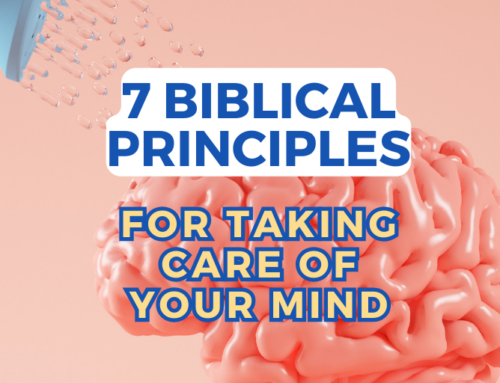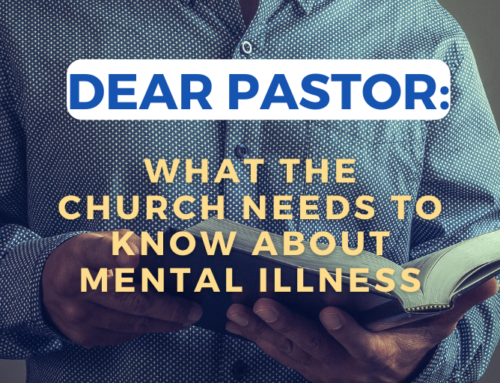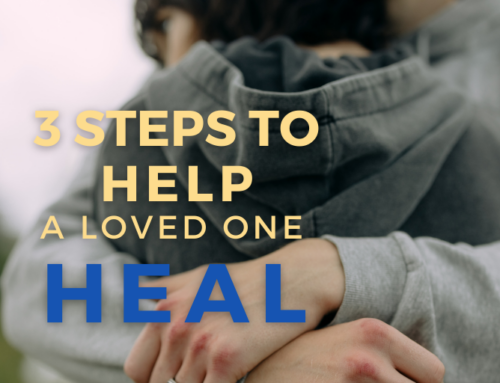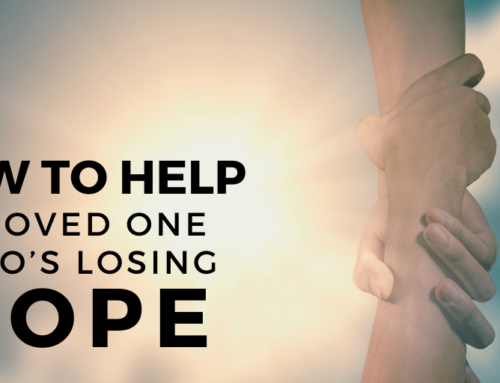When Jesus saw him lying there and learned that he had been in this condition for a long time, he asked him, “Do you want to get well?” (John 5:6)
Anosognosia, also called “lack of insight,” is a symptom of severe mental illness experienced by some that impairs a person’s ability to understand and perceive his or her illness. It is the single largest reason why people with schizophrenia or bipolar disorder refuse medications or do not seek treatment. Without awareness of the illness, refusing treatment appears rational, no matter how clear the need for treatment might be to others. (“Anosognosia” from The Treatment Advocacy Center)
I have a friend I’ll call Thomas. Thomas is a young man who, when he was in college, began to demonstrate disruptive symptoms. A very bright and engaged student, he suddenly became easily confused and would hide in his dorm. He had been meticulous in his appearance; now he went weeks without taking a shower. Sometimes he would go for all night bike rides; sometimes he would barely get out of bed. Some friends became very concerned and convinced him to see a campus counselor, who then referred him to a local psychiatrist.
The psychiatrist diagnosed Thomas with Schizoaffective Disorder, an incurable mental illness. The symptoms, however, can be managed with medication, therapy, and lifestyle choices. Thomas was fine with the lifestyle choices. He already had a healthy food plan and exercised regularly. He wasn’t keen on the notion of giving up his all night bike rides, but he was willing to make the sacrifice. Being a psychology major, he was actually eager to get into reflective discussions with a therapist about various theories, behavior modification, and treatment approaches. BUT — medicine was a different story. In his mind, Thomas was convinced psychotropic medicine would not only be ineffective, but would do him harm, perhaps even cause permanent brain damage.
Approximately 50% of individuals with schizophrenia and 40% with bipolar disorder have symptoms of anosognosia. Long recognized in stroke, Alzheimer’s disease and other neurological conditions, studies of anosognosia in psychiatric disorders is producing a growing body of evidence of anatomical damage in the part of the brain involved with self-reflection. When taking medications, insight improves in some patients. (“Anosognosia” from The Treatment Advocacy Center.)
Almost half of persons with serious mental illness are reluctant or refuse to take medications necessary to keep them relatively balanced. Why is this? Many believe it is simply a matter of ignorance or selfish bull-headedness. Loved ones can take it personally. Why is she doing this to me? Doesn’t he care about how this impacts the family? But this perspective, these concerns, fail to take into account the primary cause of refusal to take psychotropics. Many persons with mental illness believe the pills are poison and cause their brains to explode, causing more pain to everyone.
So, what can be done to help someone who believes he needs no help?
Clincial Psychologist James Fix says this —
We never win on the strength of our arguments, but on the strength of our relationships. (“What to Do When a Loved One Has Anosognosia: Lack of Awareness”)
It may seem like a simple recipe, but the surest way to help someone with Anosognosia is not through any magic medicine or fancy treatment, but with basic kindness and respect. Building trusting relationships won’t always motivate them to take their meds for better balance, but it is much more effective than pronouncing judgement upon them.
I’m happy to say Thomas has improved now. He became a member of a faith-based support group where he grew in faith and love and learned to trust God and others. He felt listened to, so he started listening to others. He gained insight in therapy and even starting taking medication, though he still goes off now and then. The Anosognosia that causes his mind to betray itself has not gone away, but it is much less possessive. He is more balanced, more engaged, more whole.
If you would like to learn more about Anosognosia, visit this page from the National Alliance on Mental Illness website.)







